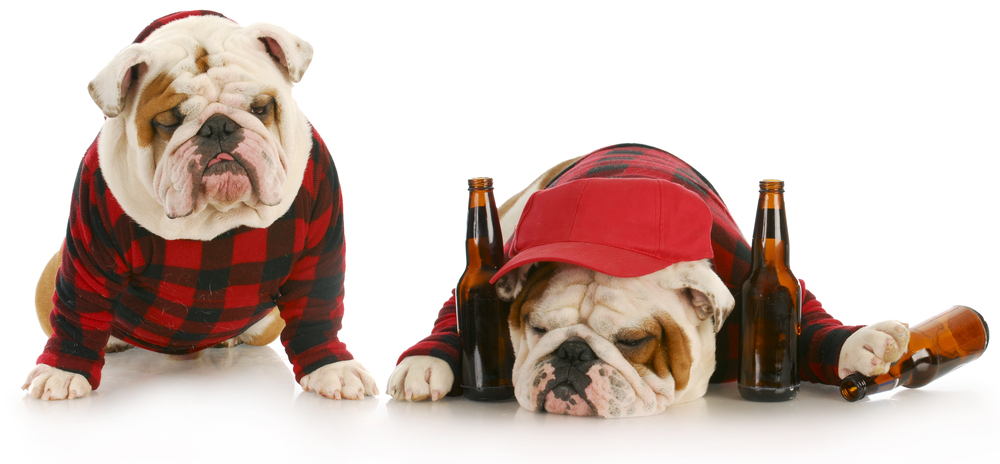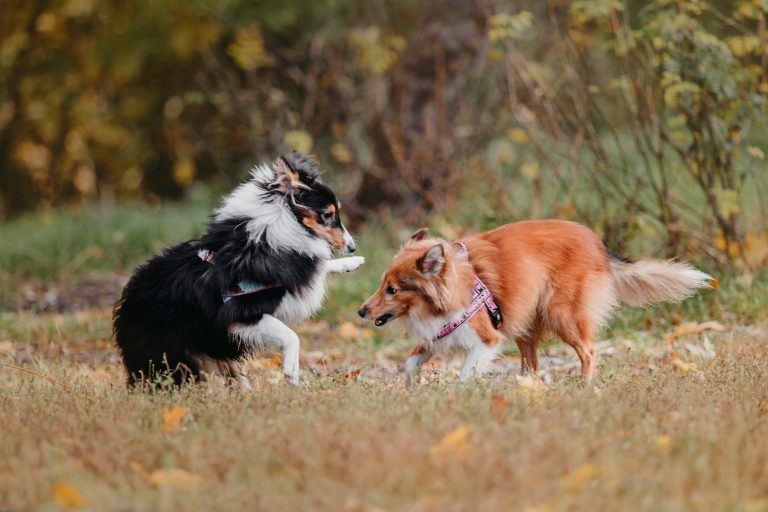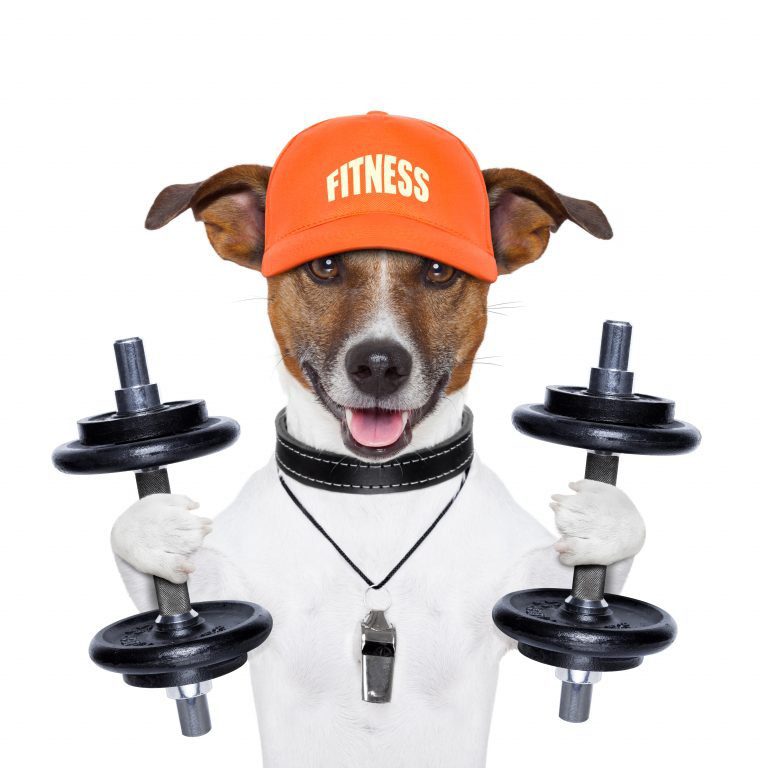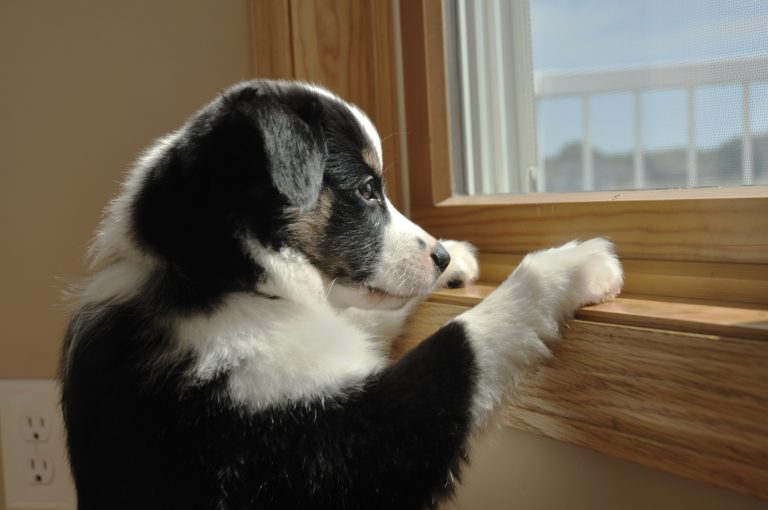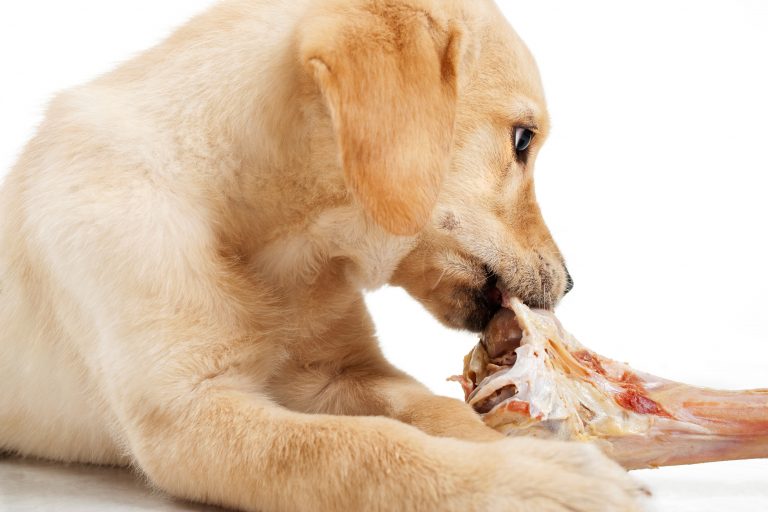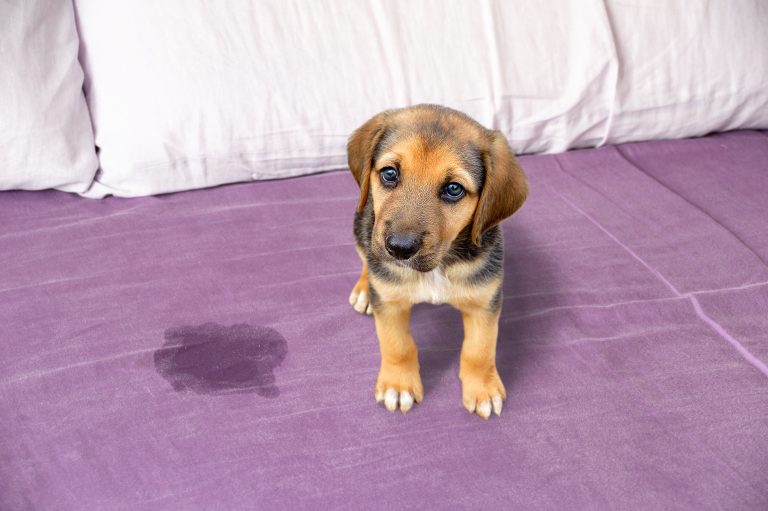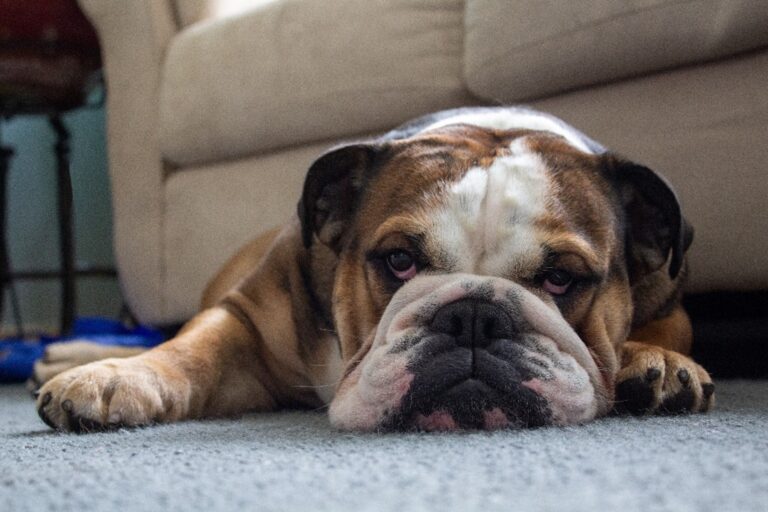Can Dogs Get Drunk?
Dogs have big appetites for anything and everything you serve them, even when they are not necessarily healthy or harmless for them. We cannot blame them if they sneak out food they cannot eat, especially when they are left unsupervised. Some of the top foods we should avoid giving to our beloved dogs are grapes, chocolate, and ham. How about alcohol? Does it have any effect on them? Can dogs get drunk?
Unfortunately, it is possible for dogs to get drunk. In fact, alcohol is toxic to dogs.
How much alcohol should be consumed before they get drunk, you might ask. Well, it depends on the weight of the dog and the volume of the substance taken. The volume of the alcohol matters more than what type of alcohol was consumed.
It has been concluded that a dose of 5.5 to 7.9 g/kg of 100% ethanol is enough to intoxicate dogs. This is equal to 0.789 g of alcohol. In this blog post, we discuss the harmful effects of alcohol on dogs, which foods, beverages, and liquids can intoxicate dogs, aside from the alcoholic drinks, and what you should do when your dog, in fact, gets drunk.
What are the Harmful Effects of Alcohol on Dogs?
Fortunately, alcohol poisoning is not common in dogs since alcohol is not naturally appetizing for canines. However, we want to keep an open mind and assume that any accident can happen.
Ethanol poisoning occurs upon alcohol consumption of large volume within a short period. Keep in mind that dogs have lower intolerance given their smaller bodies compared with the human body. When intoxicated, they may show the following symptoms, according to American Kennel Club:
● Depression or lethargy
Intoxicated dogs may exhibit extremely low energy and have the tendency to sleep more or lose interest in activities they usually enjoy. Is your usually active dog lying down and sleeping more than usual?
● Incoordination
Look out for abnormal movements in the legs, head, or torso when your dog is moving around. Does it seem to have difficulty walking straight, much like a drunk man?
● Excessive panting
Dogs pant naturally when they are hot, tired, or excited. Anything in excess could be a cause of worry for dog owners especially when alcohol toxicity is involved.
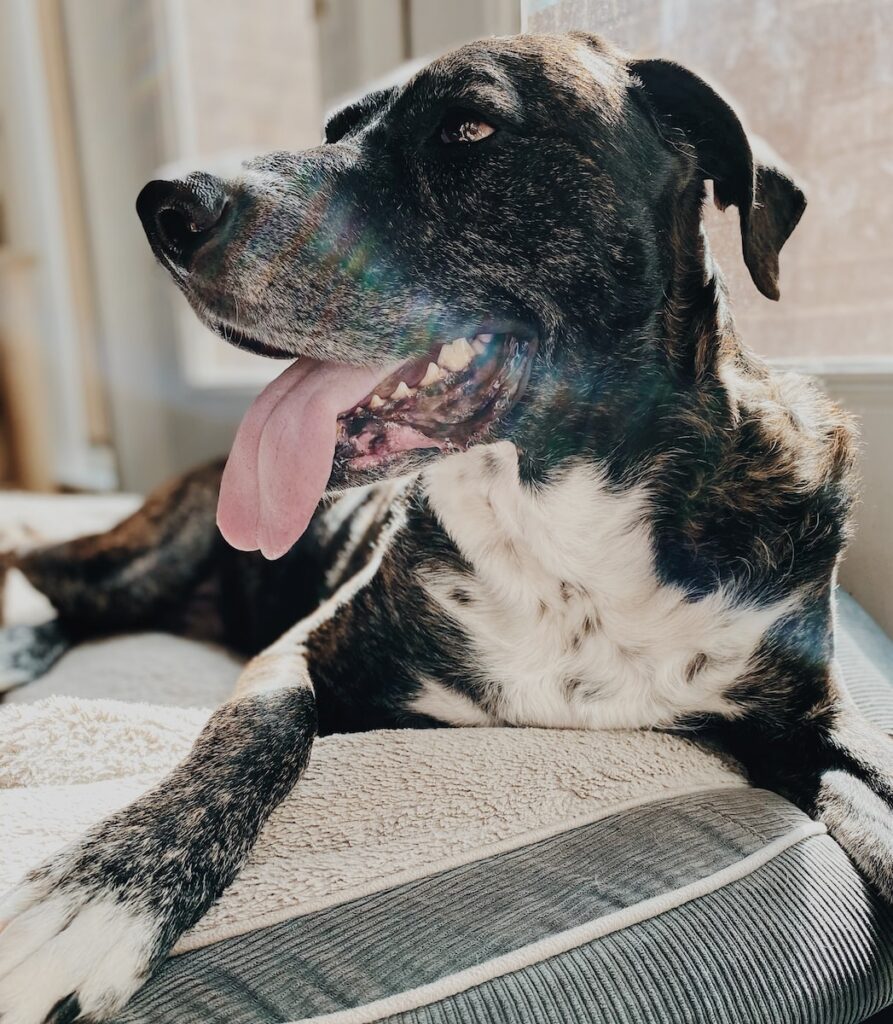

● Drooling
Aside from dental issues, infection, and mouth irritants, alcohol can be a possible cause of drooling among canines. This is especially so if you notice that your dog is drooling in exceptional amount.
● Vomiting or retching
Alcohol can irritate a canine’s digestive system, which then triggers vomiting. When done excessively, the dog could become dehydrated.
● Weakness
Drunk people are usually either loopy or physically weak. Dogs can experience the same symptom, although not the happy kind of drunk!
● Collapse
When prolonged, weakness can give dogs an extreme loss of strength, resulting in collapsing or fainting. This will be obvious when your dog is walking and suddenly it collapsed on the floor.
● Difficulty breathing
As the respiratory system can be affected by alcohol content, this could affect your dog’s breathing when the minor symptoms are left ignored.
● Slowed heart rate
Slow heart rate occurs in the more severe cases with alcohol intoxication. When this happens, it’s likely your dog has drunk a lot or it had gone unnoticed for awhile.
● Hypoglycemia (low blood sugar)
● Hypotension (low blood pressure)
● Hypothermia (low body temperature)
The above 3 lows can only be detected by the vet when you bring your dog in for a check up.
What are Food and Beverages That Could Intoxicate Dogs?
For instance, a regular beer has an ethanol % of 5. Malt liquor has 7%, wine with 12%, and hard liquor with 40% alcohol. In hindsight, alcoholic beverages are not the only possible culprit for a dog’s alcohol poisoning.
To be specific, there are three different types of alcohol, namely isopropanol, methanol, and ethanol. Let us discuss each one briefly.
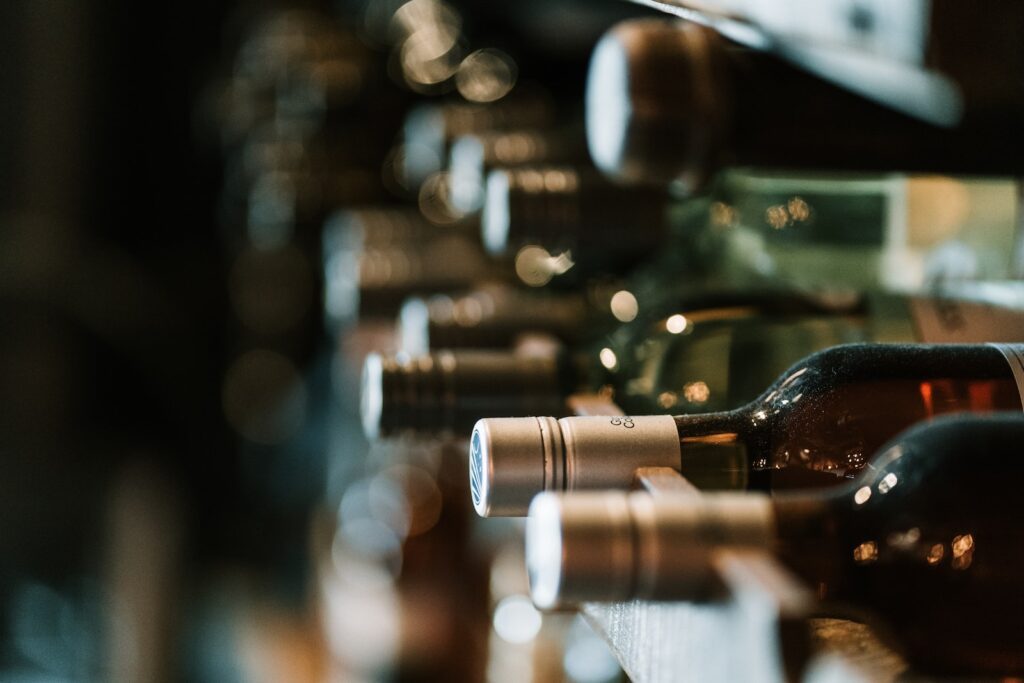

● Isopropanol alcohol is typically present in rubbing alcohol, hand sanitizer, disinfecting pads, and alcohol-based sprays.
● Methanol alcohol can be found in lab solvents, gasoline agents, and antifreeze products. This is highly dangerous and can cause extreme damage to the internal organs and nervous system.
● Lastly, ethanol alcohol is present in food and beverages mainly for human consumption. Ethanol is produced through fermentation. As such, take a look at foods that can or will ferment.
Some examples under these alcohol categories include bread dough, rotten apples, cough syrup, mouthwash, cologne, perfume, cleaning solutions, pharmaceuticals, paints, hair dyes, and all other products with ethanol.
In particular, mouthwash has 14 to 27% ethanol per volume, aftershave with 19 to 90%, coffee liqueurs with 21 to 26.5%, cologne or perfume with 50%, and hand sanitizers with 60 to 95% ethanol per volume.
In some instances, dogs may have skin reactions to alcohol. However, it takes a huge amount to reach this point.
HELP! My Dog Seems Drunk. What Should I Do?
So the accident finally happened and your dog indulged in some wine, beer, or perhaps cleaning products with alcohol in them. Your dog got drunk and you are now in a state of panic. Should you do an at-home remedy first or wait for professional vets to do their job? What is the right thing to do?
In the best-case scenario, your dog only ingested a couple of gulps that will not have a significant effect on it. Worst case scenario, your dog could get intoxicated and suffer from any of the symptoms we enumerated above, ranging from vomiting to a complete collapse. When left unaddressed, this could be fatal for Fido.
What should you do?
Here are a couple of reminders to keep in mind. It takes only as little as 30 minutes for your dog’s body to absorb alcohol, so you need to act fast. It is better to bring your dog to the vet as soon as possible and do not wait any longer for symptoms to appear.
Contact your local vet immediately to advise about your dog’s possible intoxication and your estimated arrival. If the case is severe, they would most likely accommodate you and prioritize you over other patients. Even if the case is mild, it is better to know your dog’s actual status so you would know what to do next.
Remember to bring the suspected item that might have induced your dog’s symptoms. This will help the vet determine your dog’s condition faster and determine if it is a mild or serious case.
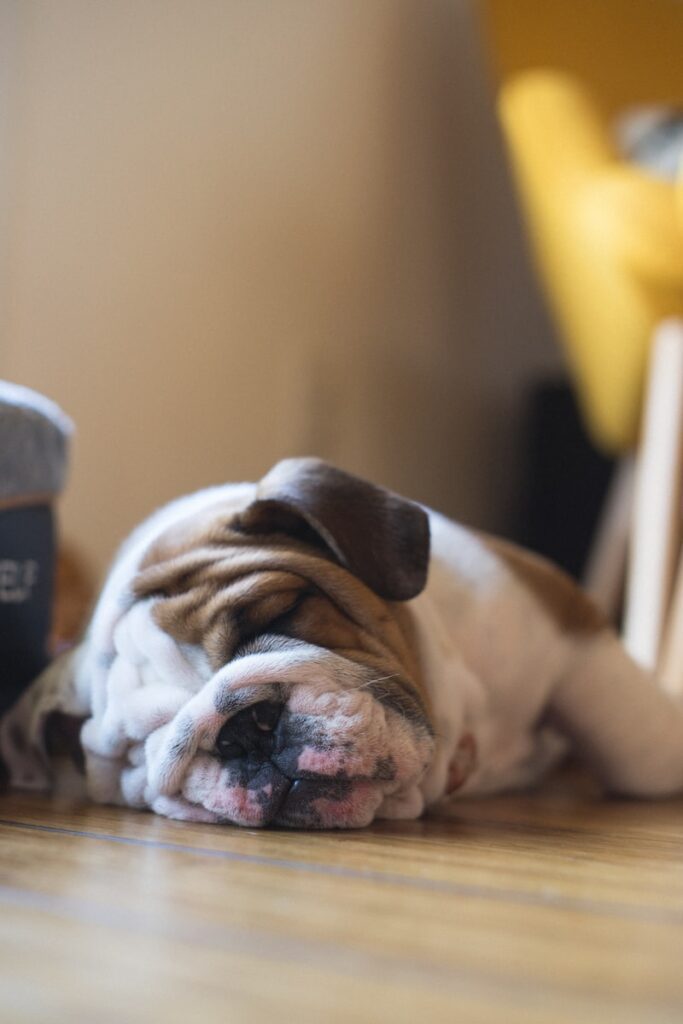

Treatment of Intoxicated Dog
Once you have settled your dog in the vet clinic, your dog would most likely undergo a “toxic screen” to check their toxic content inside the body. A blood test should also be in place to check your dog’s kidney and liver functions.
If the alcohol was consumed in the last 2 hours, the vet might induce vomiting to remove the toxins from the body. Readjusting the body temperature and providing sufficient ventilation are also the top priorities.
IV fluids may be needed to release electrolytes to your dog’s kidney. This will also assist in removing the alcohol toxins. In case your dog has experienced a seizure or difficulty breathing, seizure medication or intubation should be in place.
Recovery of Intoxicated Dog
Alcohol intoxication affects the following systems in order:
- Nervous system
- Respiratory system
- Cardiovascular system
It will take some time for dogs to recover when all three systems are hit. If the case is mild to moderate, recovery can be achieved within the next 4 hours. A more serious case requires Fido to be confined for 24 hours.
Once your dog is home, give it some more time to recover and get back to the normal state of things. Give it a comfortable spot to rest well and regain its energy. This is also a good time to re-organize your things and make sure no alcohol can be easily reached by your dog. Also, replenish its water bowl every now and then and make sure your furball drinks plenty of H20 to hydrate its body again.
Love pampering your dogs? Then this UPSKY Dog Bowl is perfect for them. It is a slow water feeding that leaves no mess and no drips around the bowl. It features separable disks that prevent the bowl from housing dust, dirt, and pet hair. So far, this keeps the water in pristine condition so you do not have any worries about what your dog ingests.
The floating disk itself controls the release of the water so your dog can avoid having a drenched mouth. It works via sensor by detecting your dog’s tongue and releasing water in a spill-proof fashion. Meanwhile, the splash-proof design of the bowl prevents a water overflow to keep your floors tidy and lessen your cleaning time by a lot.

As with its capacity, the UPSKY Dog Bowl has a large and deep capacity of 35 oz in total. This is enough for an entire day’s drinking to keep Fido well-hydrated, especially after alcohol poisoning. With its design, the bowl comes in 4 different designs: Bastic, Blue, Pink, and White.
Final Thoughts
To conclude this blog post: Can dogs get drunk? YES, dogs can get drunk from fermented food, alcoholic beverages, and alcohol-based products like cleaners and solvents. The severity of the case can range from asymptomatic to severe.
Some symptoms include lethargy, vomiting, and incoordination, among the milder ones. Worst cases could lead to breathing difficulty, seizure, and collapse. In any case, always consult with professional vets for the right diagnosis. More importantly, always keep dangerous items out of your furball’s reach!

